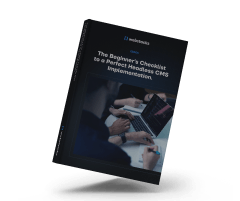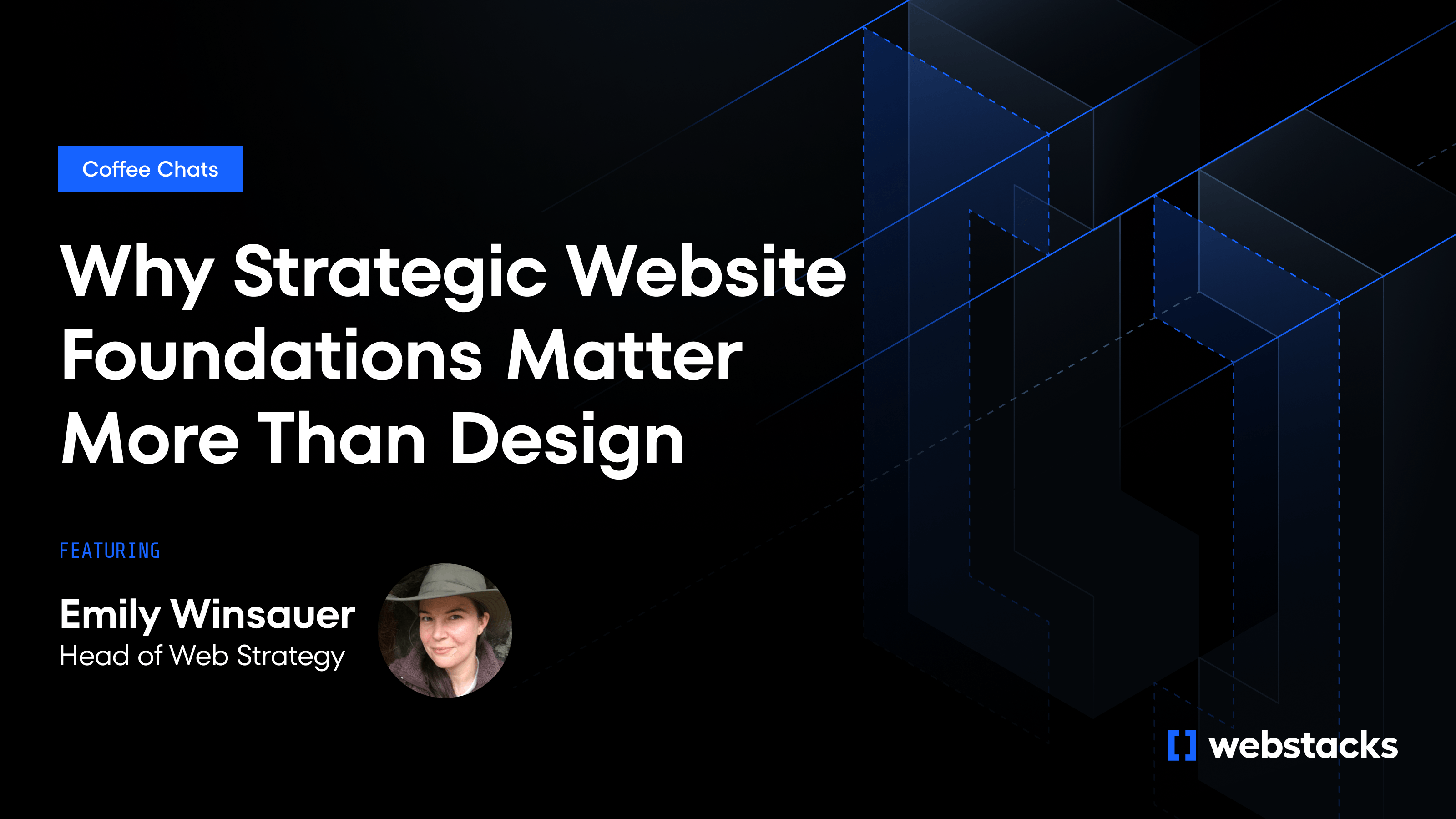As much as 93% of consumers consider visual appearance the key deciding factor in a purchasing decision.
In other words, how you approach your web design for eCommerce can make all the difference. This article will explore the key points of a good eCommerce web design.
In brief:
- A clean layout with intuitive navigation keeps users focused and engaged.
- SSL certificates, trust badges, and clear privacy policies instill confidence in customers.
- Tailoring recommendations and content boosts engagement and conversions.
- Speed and mobile optimization ensure accessibility and user satisfaction.

4 Key Elements of eCommerce Homepage Design
If you’re feeling overwhelmed by all the elements that need to be perfect, you’re not alone. Here’s what you need to focus on:
1. Prominent Search Bar
A prominent search bar is a must-have for any e-commerce website. It allows users to quickly find specific products without having to navigate through multiple pages. Place the search bar in a visible location, usually in the header, where users can easily spot it.
A well-placed search bar enhances user experience by providing a direct path to the products they are looking for, saving them time and reducing frustration. For perfect mobile optimization, ensure your search bar is easily accessible on all devices.
2. Featured Products or Categories
Featuring popular or seasonal items on your homepage can guide users to high-converting pages. Highlighting these products or categories helps capture the user's interest right away.
This approach not only showcases what’s trending but also directs traffic to items that are more likely to result in sales. Use high-quality images and compelling descriptions to make these featured sections stand out.
3. Clear Navigation Menu
A clear navigation menu is vital for organizing products into intuitive categories. This makes it easy for users to browse the site and find what they need.
The menu should be straightforward and logically structured, with categories and subcategories that make sense to the user. Avoid clutter and ensure that each menu item is clearly labeled.
This helps users move through your site seamlessly, improving their overall shopping experience and building a scalable website for your high-growth teams.
4. Compelling Hero Image or Slider
A compelling hero image or slider grabs users' attention and communicates your brand messaging effectively. This visual element should be high-quality and relevant to your target audience. Use it to highlight key products, promotions, or brand values.
The hero image or slider serves as the focal point of your homepage, drawing users in and encouraging them to explore further. Make sure it is visually appealing and aligns with your brand’s aesthetic.
10 eCommerce Website Design Best Practices
Feeling lost about best practices? Here’s what you need to know:
1. Prioritize Page Speed
Fast load times are essential for both user experience and SEO, as they reduce bounce rates and improve search rankings.
To achieve optimal speed, it's crucial to optimize images by compressing them without sacrificing quality, minify code to reduce file sizes and utilize a content delivery network (CDN) to distribute content efficiently across the globe.
These strategies ensure that your website loads quickly, providing users with a seamless experience and increasing your chances of ranking higher on search engines.
2. Make it Mobile-Friendly
With a growing number of users accessing websites via mobile devices, it's vital to ensure your site is responsive and user-friendly on smaller screens.
This involves optimizing images and buttons for touch interactions, ensuring they are easily tappable and appropriately sized.
Additionally, simplifying the checkout process for mobile users can lead to higher conversion rates, as it reduces friction and makes it easier for users to complete purchases on the go.
3. Use Whitespace Effectively
Whitespace, or the intentional use of empty space around design elements, plays a key role in improving readability and enhancing visual appeal.
By strategically using whitespace, you can guide users' attention to key elements such as call-to-action buttons or important content, making your website easier to navigate.
This approach also contributes to a clean, modern aesthetic that makes your site feel more professional and less cluttered, ultimately leading to a better user experience.
4. Implement Clear Calls-to-Action
Calls-to-action (CTAs) guide users towards taking specific actions, such as making a purchase or signing up for a newsletter.
Use concise, action-oriented text like "Buy Now" or "Sign Up" to make the desired action clear.
Place CTAs in prominent, logical locations where users are likely to see them, such as at the end of product descriptions or in the header. Ensure buttons stand out with contrasting colors to draw attention and encourage clicks.
5. Optimize for SEO
Optimizing your e-commerce site for search engines helps improve visibility and attract more organic traffic. Use relevant keywords in titles, descriptions, and product pages to help search engines understand your content.
Ensure fast load times and mobile responsiveness, as these factors influence search rankings. Include alt text for images to improve accessibility and provide additional context for search engines.
6. Provide Easy Navigation
Easy navigation helps users find what they need quickly, reducing frustration and improving the overall shopping experience.
Use a clear, hierarchical menu structure that organizes products into logical categories.
Include breadcrumbs to allow users to backtrack easily and understand their location within the site. Ensure all links are functional and relevant to maintain a smooth browsing experience.
7. Utilize High-Quality Visuals
High-quality visuals enhance the appeal of your products and help build trust with potential customers.
Use high-resolution images and videos that accurately represent your products.
Ensure consistency in style and quality across all visuals to maintain a professional appearance. Include zoom and 360-degree view options to allow users to inspect products closely and make informed purchasing decisions.
8. Integrate User-Generated Content
Incorporating user-generated content builds trust and fosters engagement on eCommerce websites. Displaying customer reviews and testimonials helps validate product quality and authenticity, influencing purchasing decisions.
Authentic feedback reassures potential buyers and highlights positive experiences. Encouraging users to share photos or videos of products in real-life settings can further enhance credibility and connection. These submissions not only provide relatable content but also serve as organic endorsements.
Featuring this content prominently on product pages or social media channels ensures that prospective customers see genuine product usage, creating a sense of community and trust.
9. Personalization Strategies
Personalization enhances the shopping experience by catering to individual user preferences. Tailored product recommendations, driven by browsing history or past purchases, help users discover items they are more likely to buy. These suggestions save time and improve satisfaction.
Dynamic content customization further refines the experience by adapting to user behavior, such as showing relevant promotions based on location or preferences. By focusing on personalization, eCommerce websites can create a seamless and engaging journey that not only boosts conversions but also strengthens customer loyalty.
10. Security and Trust Indicators
Establishing security and trust is essential for any eCommerce site. Implementing SSL certificates ensures data encryption, protecting user information during transactions. Trust badges and security seals displayed prominently reassure customers about the safety of their purchases.
Transparent privacy policies that clearly outline how user data is collected, stored, and used help build confidence in the platform. Communicating these safeguards fosters trust, encouraging users to complete their transactions with peace of mind. A secure and transparent environment is key to converting visitors into loyal customers.

How to Optimize Product Pages for Conversions
Worried that your product pages aren’t converting? Here’s what you can do:
1. Use High-Quality Product Images
High-quality product images play a significant role in converting visitors into buyers.
- Showcase your products from multiple angles to give users a comprehensive view. This helps them understand what they are purchasing and builds confidence in their decision.
- Allow users to zoom in for detail, enabling them to inspect the product closely. This feature is particularly useful for items with intricate details or textures.
- Consider including lifestyle or in-context shots that show the product in use. These images help users visualize how the product fits into their lives, making it more appealing and relatable.
2. Write Compelling Product Descriptions
A compelling product description can make a significant difference in your conversion rates.
- Highlight key features and benefits to inform users about what makes your product unique.
- Use persuasive language that resonates with your target audience. This involves understanding their needs and addressing how your product solves their problems.
- Optimize your descriptions for search engines by including relevant keywords.
This practice helps improve your product's visibility in search results, driving more organic traffic to your site. Deciding whether you need a website refresh vs redesign can also impact your conversion rates.
3. Display Customer Reviews and Ratings
Customer reviews and ratings build trust and credibility, which are vital for encouraging purchases.
Display these reviews prominently on your product pages. They provide social proof, showing potential buyers that others have had positive experiences with your product.
This can be the deciding factor for users who are on the fence about making a purchase. Reviews can be displayed as star ratings or detailed testimonials. Both formats are effective in providing the reassurance that potential buyers need to complete their purchase.
3 Common eCommerce Website Design Mistakes to Avoid
If you’re worried about pitfalls, here are some mistakes to steer clear of:
Poor Product Photography
Low-quality or small images can deter purchases. When customers can't see the details of a product, they hesitate to buy. High-resolution images that show the product from multiple angles help build confidence.
Inconsistent or mismatched styles can appear unprofessional. Ensure all product photos follow a uniform style and quality. This consistency enhances the overall look of your site and makes it more trustworthy.
Confusing Navigation
Unclear categories or too many options can overwhelm users. Simplify your navigation by grouping products into logical, easy-to-understand categories. This helps users find what they need quickly. Hidden or hard-to-find menu items can frustrate shoppers.
Make sure your menu is visible and intuitive. Use clear labels and avoid burying important links. A well-organized navigation menu improves user experience and keeps visitors on your site longer. You can also go for a website redesign to accommodate all this into your webpage.
Lack of Trust Signals
Missing contact information or security badges can raise red flags. Display your contact details prominently. Include a phone number, email address, and physical address if possible. Security badges and trust seals reassure customers that their data is safe.
Unprofessional design or errors can erode credibility. A polished, error-free site builds trust. Regularly check for broken links, typos, and other issues that can make your site look unreliable.
What Are the Benefits of Effective E-commerce Website Design?
If you’re concerned about your site’s performance, you’re not alone. Many marketing managers worry about conversion rates, user experience, and brand perception. Here’s why effective web design is crucial:
Increased Conversions
A well-designed e-commerce website can significantly boost your conversion rates. An intuitive design helps users navigate your site effortlessly, guiding them towards making a purchase. When users can easily find what they’re looking for, they’re more likely to complete a transaction.
Prominent calls-to-action (CTAs) play a key role here. Strategically placed CTAs encourage users to take desired actions, whether it’s adding items to their cart or proceeding to checkout. These elements work together to create a seamless shopping experience that drives sales. For more tips, explore this SaaS website redesign guide.
Enhanced User Experience
User experience is paramount in e-commerce. Easy navigation ensures that users can quickly locate products or information they need. This reduces frustration, improves your website's ROI, and keeps them engaged with your site.
Clean layouts contribute to a pleasant browsing experience. When your site is free of clutter, users can focus on the products and content that matter most. This not only makes their visit enjoyable but also increases the likelihood of them returning.
A user-friendly design keeps visitors on your site longer and encourages them to explore more pages, ultimately leading to higher engagement and sales.
Improved Brand Perception
The design of your ecommerce website directly impacts how users perceive your brand. A professional design establishes credibility and trust, making users feel confident in purchasing from you.
Consistent branding across your site reinforces your brand identity, helping to build recognition and loyalty. When users see a cohesive design that aligns with your brand’s values and aesthetics, they’re more likely to trust your business.
This trust translates into repeat customers and positive word-of-mouth, both of which are invaluable for long-term success and for achieving a profitable website.
Summary of a High-Quality eCommerce Website Design Structure
- Clean, uncluttered layouts: A simple, straightforward design helps users focus on your products without distractions. It also makes your site look professional and trustworthy.
- Easy navigation: Users should be able to find what they’re looking for quickly. A well-organized menu and clear categories make browsing effortless.
- High-quality product images: Great visuals can make or break a sale. Use high-resolution images that show your products from multiple angles. This helps customers feel confident in their purchase.
- Prominent calls-to-action: Clear and compelling CTAs guide users toward making a purchase. Place them strategically throughout your site to encourage action.
- Mobile responsiveness: With more people shopping on their phones, your site must look and function well on all devices. A responsive design ensures a seamless experience for mobile users.
Our Take on Web Design Best Practices for eCommerce
Effective eCommerce web design prioritizes clarity, security, and usability to create a seamless shopping experience.
Users expect fast-loading pages, intuitive layouts, and mobile accessibility to navigate effortlessly. Design must balance aesthetics with functionality to make sure that product discovery and checkout are as frictionless as possible.
Personalization enhances engagement, while trust signals like SSL certificates and user reviews build credibility. The challenge is aligning these elements into a cohesive platform that meets both user needs and business goals.

How Webstacks Approaches eCommerce Website Design
If you’re wondering how to get started with a high-performance e-commerce site, here’s what you need to know:
- Creating a high-performance e-commerce site starts with using modern technologies. React, Next.js, and Gatsby provide the foundation for scalable and fast websites. These technologies enable dynamic and responsive user interfaces, ensuring your site performs well under heavy traffic and delivers a seamless user experience.
- Composable architecture and headless CMS offer flexibility and speed. This approach allows you to manage and deliver content efficiently, making it easier to update your site without disrupting the user experience. Headless CMS solutions like Contentful and DatoCMS integrate smoothly with various front-end frameworks, giving you the freedom to choose the best tools for your needs.
- Persuasive design techniques guide users towards conversion and are part of an effective website strategy. This includes using clear and compelling calls-to-action strategically placed throughout the site. Visual cues and user-friendly layouts help direct users to key actions, such as adding items to their cart or completing a purchase. These techniques enhance the overall user experience and increase the likelihood of conversions.
- Collaboration with clients is key. Understanding your unique needs and goals allows for a tailored approach to your e-commerce site. Close collaboration ensures that the design aligns with your brand and meets your business objectives. Regular communication and feedback loops help refine the design process, resulting in a website that effectively supports your ecommerce strategy.
Ready to elevate your e-commerce website? See the Webstacks difference by scheduling a brief discovery call today. Visit Webstacks to get started.




